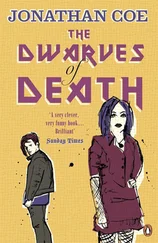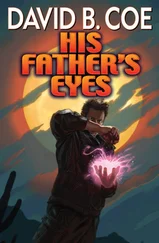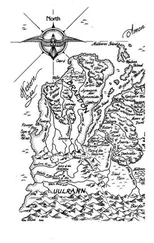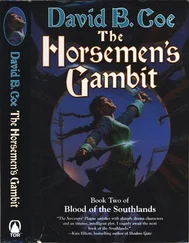‘Oh dear, it’s a bit cold in here, isn’t it?’ Laura said, laying a hand on the one small radiator. ‘I’ll get Keisha to bring up a fan heater. And what are these doing here? They should have been moved ages ago.’
She was referring to two large cardboard boxes, crammed to the brim with old VHS tapes. Her curiosity aroused by this display of antique technology, Rachel knelt down to look at the titles.
‘Wow. I’ve never heard of most of these,’ she said. The first tape she had picked up was labelled THE QUATERMASS XPERIMENT BBC 2 24.2.85/THE ABOMINABLE SNOWMAN BBC2 3.10.87 .
‘Well, you’re looking at my husband’s pride and joy,’ Laura said. ‘Or rather, a tiny portion of it. There are thousands more — and I do mean thousands — down in the cellar. Whether that’s a good place to keep them, I don’t know. I can’t think what else to do with them at the moment. Oh God, I’ve been looking for this one for ages .’
She plucked out another tape, its cardboard case torn and patched up with Sellotape. Rachel craned over to see the title.
‘ What a Whopper ?’ she said, amused and disbelieving. ‘What on earth’s that?’
‘Believe it or not, this is one of the films I’m supposed to be writing about. You certainly wouldn’t catch me watching it for pleasure. In fact it’s hard to believe that anybody ever did. Do you think you could help me take these down to the cellar as well? I don’t want them to be in your way.’
They picked up a cardboard box each and began the slightly hazardous business of carrying them down the narrow, uneven staircase.
‘Why are you writing about it, if it’s so bad?’ Rachel asked. ‘The film, I mean.’
‘Well, the plot — such as it is — involves the Loch Ness Monster. I haven’t got a clue what I’m going to say about it, but in this business you always win Brownie points for digging up something obscure. Roger was particularly good at that, I must say.’
And when they reached the cellar, it was easy to see why that might have been. It had been excavated to quite some depth, so that it was easy for both of them to stand upright. And it was filled with boxes: beneath the glare of the two naked lightbulbs that hung from the ceiling, Rachel could see at least thirty or forty of them, some filled with books or files or papers, but most simply crammed to the top with more videotapes and DVDs.
‘Wow,’ said Rachel. ‘He was quite a collector, wasn’t he?’
‘Oh yes,’ said Laura. ‘Roger never did anything by halves.’
They put their boxes down near the bottom of the stairs and then stood, for a while, in wordless contemplation of the scene of orderly profusion laid out before them. From somewhere in the cellar there emanated a faint, monotonous, electrical hum, which somehow seemed to accentuate the otherwise absolute silence. The light from one of the bulbs had started to flicker uncertainly. There was a damp, mouldering smell which made Rachel fear for the well-being of Roger’s collection, and a piercing chill which made her shiver not just with cold but with sadness. She was keenly aware that she was looking at more than just a jumble of files and boxes. These were the last remains of a human being: all that was left of Laura’s husband.
Laura’s only comment was: ‘What a mess. I’ve got to do something about it soon.’ And then: ‘Come on, it’s getting late. We’d better have this walk before it gets dark.’
She turned and led the way up the stairs, much to the relief of Rachel, who could not get out of there quickly enough. She had always hated cellars.
On the ground floor, Laura detoured into the kitchen, where Keisha was busy loading a full basket of washing into the washing machine.
‘Did you get the parcels ready?’ Laura asked.
‘On the table,’ Keisha answered, without looking up.
From the kitchen table, Laura picked up a large, eco-friendly canvas shopping bag, which seemed to be heavier than she was expecting.
‘Do you think you could take the other one?’ she said. ‘Sorry to be a bore, but this has become a bit of a weekend ritual.’
Rachel grabbed hold of another bag, and glanced down at the contents: tins and packets of food, a jar of instant coffee and some boxes of breakfast cereal.
‘We’ll drop these off on the way, if you don’t mind,’ Laura said, and ushered her into the hallway. They were almost at the front door when Harry came rushing up behind them.
‘Mum, where are you going?’ he asked, plangently.
‘We’re going to the food bank,’ she said. ‘And then we’re going for a walk.’
‘Can I come with you?’ he pleaded.
‘No. You stay here. I thought you were playing with Keisha.’
‘I was but now she’s busy. She says she has lots of things to do.’
‘Well … read a book, or watch a video or something.’ Her tone was noticeably abrupt, dismissive. Rachel looked at her in surprise.
‘Oh Mum, please . I want to come with you.’
With obvious reluctance, Laura finally relented. Out on the drive she heaved Harry into the back of the car and strapped him into his booster seat and then the three of them drove off in the direction of Didcot.
*
Rachel had never been to a food bank before. She had read articles about them, online and in the newspapers. But she had never been inside one.
It was a brief visit, so she only received a fleeting impression. The bank had been set up in what appeared still to be used, on other days of the week, as a café, located in a narrow side road running off the high street. People were sitting in family groups at each of the lightweight silver tables, but they were not drinking coffee: they were clutching vouchers and waiting for their parcels to be made up. Nobody bore any outward sign of poverty. Well-dressed couples waited in pensive silence while bored children sat beside them. The most noticeable thing was that nobody from one table ever seemed to make eye contact with anyone from another. The prevailing mood, as far as Rachel could see, was one of mortification: everybody simply wanted to finish their business and leave as quickly as possible. Somewhere at the back there seemed to be a store room, where the parcels were made up: these would then be carried to the counter where volunteers would match them up to the relevant voucher and call out a number. A family member would scurry up to the counter, eyes never leaving the floor, grab the parcel and then usher their partner or children out of the front door. A number would be called out every twenty or thirty seconds, and there was a constant stream of people going in and out. It was as busy as a GP’s waiting room.
People glanced up at Laura, Rachel and Harry as they came in carrying their shopping bags, but soon looked away again. It was painfully clear who was a donor and who was a supplicant. Rachel had rarely felt so self-conscious. They were shown straight to the store room, and dropped off their bags so quickly that Rachel barely had time to take in the variety of food on the shelves: row upon row of tinned fruit, tinned meat, bags of rice and pasta, packets of biscuits and cakes, all marked with use-by dates in thick black marker pen. Harry, his eye-level lower than hers, stared longingly at a stack of chocolate bars in different-coloured wrappers.
‘Why can’t we ever take any stuff from the food bank?’ he asked his mother as she tugged him away. ‘Why do we only ever give things?’
‘Oh, do shut up,’ she said, and Rachel was struck again by the note of severity and impatience in her voice.
After that, the drive to Longworth took about twenty-five minutes. By the time they turned off the A420 on the outskirts of the village, it was quite late, and the cloud-covered sky was already darkening to a deeper grey. The village itself seemed sleepy, relaxed, perfectly indifferent to (or oblivious of) the tragedy that had unfolded there almost a decade earlier. Laura seemed to know exactly which turnings to take, and where to park the car.
Читать дальше












